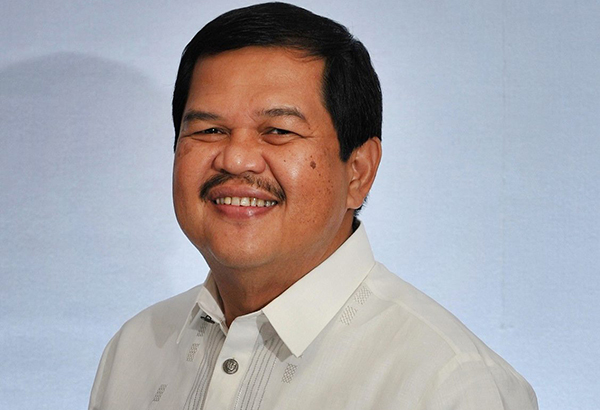BSP keeps rates steady, raises inflation outlook

BSP Governor Nestor Espenilla Jr. said the Monetary Board decided to maintain the interest rate on the central bank’s overnight reverse repurchase facility at three percent as well as the corresponding interest rates on the overnight lending and deposit facilities. File
MANILA, Philippines - The Bangko Sentral ng Pilipinas (BSP) decided yesterday to keep its interest rates steady as absorptive capacity of the domestic economy continued to improve, but raised its inflation forecasts due to rising oil prices in the world market.
BSP Governor Nestor Espenilla Jr. said the Monetary Board decided to maintain the interest rate on the central bank’s overnight reverse repurchase facility at three percent as well as the corresponding interest rates on the overnight lending and deposit facilities.
Espenilla, who presided over his first rate-setting meeting as BSP chief and Monetary Board chairman since assuming his post last July 3, said the reserve requirement ratio was also left unchanged at 20 percent.
He pointed out the decision to keep rates unchanged was based on the assessment of the Monetary Board that the inflation environment remains manageable.
“The Monetary Board also recognizes that the balance of risks to the inflation outlook continues to be on the upside. While the proposed tax reform program may exert potential transitory pressures on prices, various social safety nets and the resulting improvement in productivity will likely temper the impact on inflation over the medium term,” Espenilla said.
Inflation edged up to 2.8 percent in July from the revised 2.7 percent in June, bringing the average inflation to 3.1 percent in the first seven months.
The BSP has set an inflation target of between two to four percent between 2017 and 2020.
The Monetary Board raised its inflation forecasts to 3.2 instead of 3.1 percent this year, to 3.2 instead of three percent next year, and to 3.1 percent instead of three percent for 2019.
The body also raised the projected oil prices in the international market to $50.48 per barrel this year, $50.31 instead of $48.78 for 2018 and $51.36 for 2018, resulting in higher pump prices of petroleum products in the Philippines.
The higher inflation path is also due to the increase in domestic liquidity and credit growth as well as the continued weakening of the peso against the dollar on account of the expansion of domestic economic activity which requires more imports of capital goods and raw materials.
Furthermore, the BSP chief said authorities noted the downside risks to external demand due to geopolitical tensions and lingering uncertainty over macroeconomic policies in advanced economies.
The country’s gross domestic product (GDP) growth eased to 6.4 percent in the first quarter from 6.6 percent in the fourth quarter due to weak private consumption.
“The outlook for domestic economic activity continues to be firm, supported by buoyant consumer and business sentiment and ample liquidity,” Espenilla said.
According to him, credit activity continues to expand in line with output growth.
“Moreover, as credit activity expands in line with output growth, the economy’s improving absorptive capacity is likewise seen sustained, thus mitigating inflation pressures over the long run,” he said.
Espenilla explained the policy-setting body would continue to pay close attention to the evolving economic growth and liquidity conditions and their implications for price and financial stability.
He reiterated authorities believe the prevailing monetary policy settings continue to be appropriate.
“Looking ahead, the BSP will remain vigilant against any risks to inflation outlook and will adjust its policy settings as needed to ensure that future inflation stays aligned with the medium-term target while being supporting of sustainable economic growth,” he said.
The International Monetary Fund (IMF) earlier warned the combination of rapid credit growth, buoyant private sector investment and fiscal expansion could lead to overheating.
BSP Deputy Governor Diwa Guinigundo said the expanding absorptive capacity of the economy is shown by the continuing expansion in the capacity utilization and the purchasing managers’ index.
“There are also demand indicators that have been showing uptrends particularly the so-called high frequency indicators such as vehicle sales, manufacturing indices, and energy sales. These are all showing higher demand at the same time matched by the continuing stability in consumer prices,” Guinigundo said.
- Latest
- Trending





























